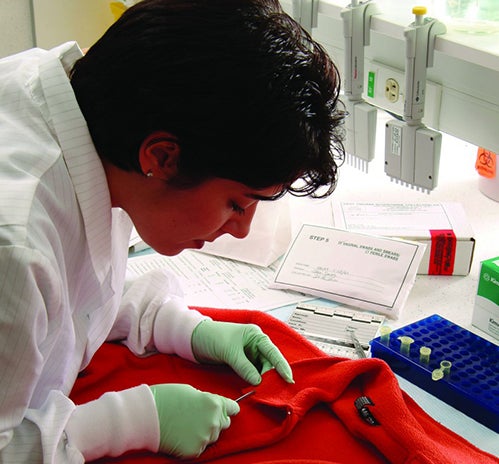“This national ranking speaks both to the level of students admitted into the program and the quality of education being delivered at Marshall University,” said Jason Chute, lab director of Marshall University’s Forensic Science Center Operation Lab. “When we see marks like this, it is no surprise that our graduates are being sought after by agencies across the country.”
FSAT is a national exam conducted by the American Board of Criminalists. It tests general forensic science knowledge among undergraduate and graduate students, who are allowed three hours to answer 200 multiple-choice questions. Topics include general sciences, history of forensics, statistics, law, ethics, laboratory operations, DNA, drug identification, toxicology, fingerprints, questioned documents, fire debris, crime scene analysis and more.
“I am very proud of our Forensic Science graduate students, who once again scored collectively as the number one program in the nation,” said Brian Morgan, interim dean of the College of Science. “This is a strong reflection on the faculty and staff of our program, who consistently educate the best of the best and work tirelessly to ensure our graduates are the most sought-after individuals in the country.”
Marshall’s graduate forensic science program is a two-year program accredited by the Forensic Science Education Programs Accreditation Commission (FEPAC). Its five-semester core curriculum offers both thesis and non-thesis options. Four areas of emphasis are offered to graduate students for in-depth education and training: DNA Analysis, Forensic Chemistry, Digital Forensics and Crime Scene Investigation. Though one area of emphasis is required, students may complete all four during their course of study.
The Forensic Science program began in 1995 and has graduated 399 students. Alumni from the program are employed throughout the United States in federal, state, local and private labs. For more information about Marshall’s M.S. in Forensic Science program, visit https://www.marshall.edu/forensics/.

